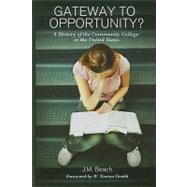
Note: Supplemental materials are not guaranteed with Rental or Used book purchases.
Purchase Benefits
What is included with this book?
| Acknowledgments | p. ix |
| Foreword | p. xi |
| Preface | p. xvii |
| The Institutionalization of Community Colleges | |
| The State of the Union | p. xvii |
| The Institutional Effectiveness Movement and Higher Education | p. xxi |
| What Is an Institution? | p. xxiv |
| The Community College: A Contradictory Institution | p. xxx |
| The Creation and Institutionalization of Junior Colleges in the United States, 1900-1980s | p. 1 |
| An Aristocracy of Talent: The Origins of Higher Education in the United States | p. 2 |
| Educational Innovation: The Creation of Junior Colleges, 1900-1940s | p. 4 |
| A Reformation: The Reinstitutionalization of Community Colleges Due to Increasing Student Access, 1950s-1960s | p. 16 |
| Community Colleges, Segregation, and Equality, 1960s-1980s | p. 24 |
| Whither To? Reaching a Plateau of Orthodoxy, 1970s-1980s | p. 30 |
| Institutional Ambiguity | p. 40 |
| Continued Struggles of the Contradictory College | |
| A Critique of Orthodoxy: The New Left Evaluates Community Colleges, 1970s-1980s | p. 41 |
| Revised but Confused Orthodoxy: The Contradictory Community College's New Missions, 1990s-2000s | p. 46 |
| Are There Economic Returns to Community College Credentials? An Economic Assessment, 1990-2010 | p. 60 |
| Overburdened and Underfunded | p. 69 |
| The California Community College | |
| Origins of the California Junior College | p. 71 |
| Massification of Higher Education and Postwar Planning | p. 75 |
| Segregated Education in California and the Junior College | p. 84 |
| The California Postsecondary Education Commission | p. 94 |
| The Master Plan Revised: Declining Budgets and a New System of Accountability | p. 103 |
| Conclusion: Accounting and Accountability | p. 116 |
| The Ambiguous Legacy of the Community College | p. 120 |
| Policy, Administrative, and Educational Implications | |
| The Reduction of Education to Human Capital | p. 120 |
| The Legacy of the Community College: A Limited Opportunity | p. 125 |
| Institutional Reform? Three Principles for Policy Makers | p. 130 |
| Notes | p. 135 |
| Selected Bibliography | p. 173 |
| About the Author | p. 183 |
| Index | p. 185 |
| Table of Contents provided by Ingram. All Rights Reserved. |
The New copy of this book will include any supplemental materials advertised. Please check the title of the book to determine if it should include any access cards, study guides, lab manuals, CDs, etc.
The Used, Rental and eBook copies of this book are not guaranteed to include any supplemental materials. Typically, only the book itself is included. This is true even if the title states it includes any access cards, study guides, lab manuals, CDs, etc.